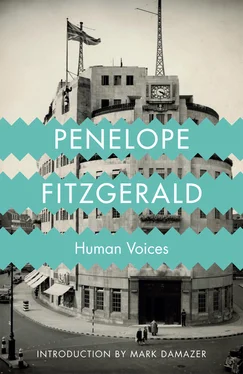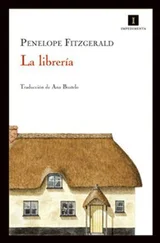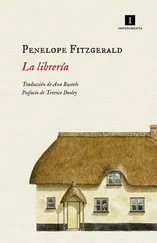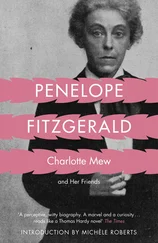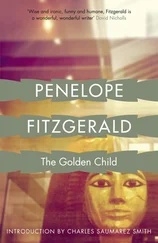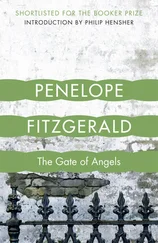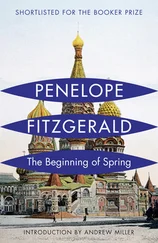‘I ought to have stopped in 1938,’ Jeff thought. ‘With Englishry.’ At the time of the Munich Agreement a memo had been sent round calling, as a matter of urgency, for the recording of our country’s heritage.
It was headed Lest we forget our Englishry . Sam had disappeared for over two weeks in one of the Wolseleys, pretty infirm even at that time, with an engineer and an elderly German refugee, Dr Vogel – Dr Vogel, cruelly bent, deaf in one ear, but known to be the greatest expert in Europe on recorded atmosphere.
There was not much hope of commonsense prevailing. Dr Vogel, in spite of his politeness and gentle ganz meinerheits , was an obsessive, who had been seen to take the arms of passers-by in his bony grip and beg to record their breathing, for he wished to record England’s wheezing before the autumn fogs began. ‘Have the goodness, sir, to cough a little into my apparatus.’ Sam thought the idea excellent.
The expedition to the English countryside arrived back with a very large number of discs. The engineer who had gone with them said nothing. He went straight away to have a drink. It was probably a misfortune that the Controllers were so interested in the project that they demanded a playback straight away. Usually there was a judicious interval before they expressed any opinion, but not this time.
‘What we have been listening to – patiently, always in the hope of something else coming up – amounts to more than six hundred bands of creaking. To be accurate, some are a mixture of squeaking and creaking.’
‘They’re all from the parish church of Hither Lickington,’ Sam explained eagerly. ‘It was recommended to us by Religious Broadcasting as the top place in the Home Counties. What you’re hearing is the hinges of the door and the door itself opening and shutting as the old women come in one by one with the stuff for the Harvest Festival. The quality’s superb, particularly on the last fifty-three bands or so. Some of them have got more to carry, so the door has to open wider. That’s when you get the squeak.’
‘Hark, the vegetable marrow comes!’ cried Dr Vogel, his head on one side, well contented.
For several weeks the Recorded Programme Department was in danger of complete reorganization, for the BBC could form and re-form its elements with ease. It was put to DPP, in consultation, that although RPD was successfully in charge of hundreds of thousands of pounds’ worth of equipment, and no fault could be found with his technical standing.…
‘You feel that he’s too interested in creaking doors,’ Jeff said.
‘He’s irresponsible.’
‘Oh, I wouldn’t say so.’
‘There was a considerable financial investment in this project, and Brooks was well aware that copies of the recordings were to be buried certain fathoms in the earth as a memorial for future generations.’
‘You could still do that,’ Jeff replied. ‘There mayn’t be any doors that creak by then. Mine doesn’t now.’ All the doors in BH were fitted with self-closing devices of an irritating nature.
It was not Jeff’s habit to soothe, but as usual the case he made for his friend, only just over the borderline of detachment, and gradually becoming more serious, proved effective. Sam never heard of these discussions. He continued like a sleepwalker, who never knows what obstacles are removed, and by what hands, from his path.
And Sam was not the only member of the Corporation who confided in Jeff. That was surprising, in view of the imperturbable surface he presented, which gave back only a stony resonance, truthful and dry, to the complaints of others. But his advice was excellent, and he could be relied upon, as so few could, not to wait for a convenient opening to start on his own grievances. Perhaps he hadn’t any, certainly he admitted to none. His calmness was really recklessness, as of a gambler who no longer felt anything was valuable enough to stake. That in turn was not likely to make him popular. Those who valued his cold judgement when they needed it, very naturally resented it when they didn’t. To see the Director of Programme Planning miscalculate might have been a relief, but during the first nine months of the war no hint of such a thing arose – never, until the affair of General Pinard.
‘You’ll get your boy back, then,’ said Della to Lise. A strong line was best, in her opinion. Everyone knew that Lise considered herself engaged and that Frédé was some kind of electrician with the French 1st Army. The way things were going they’d have to bring the French over here, there was nowhere else for them to go.
‘But that will be quite impossible,’ said Tad, demonstrating with his map. ‘You underestimate the obstacle of the English Channel.’
‘In that case, if you want my advice, you’d do best to forget him,’ said Della. ‘After all, he never gave you a ring, did he?’
Lise had not proved any better at her work than Della, which made some sort of bond between them.
Vi’s merchant seaman wrote making apparent references to home leave, but a good deal of his letter had been blacked out by the censor. What a job having to go through other people’s personal letters, Vi thought, they must feel uncomfortable, you had to pity them.
On June 10 1940 the French Government admitted that Paris could not be defended, and left for Bordeaux. Between the débandade and de Gaulle’s arrival on the 17th, there was a bizarre moment of hope when the Government learned that General Georges Pinard had escaped to London, flying his own light aircraft, and bringing with him nothing but a small valise and one junior officer. He went straight to the Rembrandt Hotel.
Historians have not yet decided – or rather, they have decided but not agreed – as to who sent the General on his desperate mission. Certainly no-one could have been more welcome. Whereas de Gaulle was practically unknown in Britain, Pinard was instantly recognizable, with his coarse silvery moustache, the joy of worn-out cartoonists, and his nose broken by a fall from a horse and flattened out of its French sharpness. His name was one of the few that the public knew well and it created its own picture.
The General was a peasant’s son from the flattest, wettest and most unpicturesque part of France, where the provinces of Aisne and Somme join. Born in 1869, he grew up with the Prussian occupation; the army rescued him from hoeing root vegetables, and he rose at a moderate speed through the ranks. Improbable as it seemed, he was a romantic, a Dreyfusard and a devotee of the aeroplane – indeed, his lectures on the importance of airpower delayed his promotion by several years. However, he cared nothing for Empire, nothing for impossible ambitions, only for the stubborn defence of the solid earth of his country. In the Great War, he was with one of the only two divisions not affected by the mutiny of 1917. He always slept excellently, and it was said that he had to be wakened by his orderly before every battle.
When the Ecole Supérieure de Guerre was reopened in 1919, Pinard was one of the first to be appointed, and was looked upon as a sound man, a counterweight, with his peasant blood, to the impossible de Gaulle. In 1940, in spite of his advanced age, he had managed to get himself the command of the 5th Armoured Division, which, in the middle of May, had made a last counterattack against the German advance.
A romantic, then, though limited by earth and sky, but nothing in his military career explained his curious fondness for the English. This could be traced to his shrewd marriage with a very rich woman, addicted, as Pinard was himself, to racehorses. Between the wars he had become a familiar figure at bloodstock sales, and at Epsom and Ascot. Much photographed at every meeting, he was always cheerful, and most important of all, nearly always a loser. That was the foundation of his great popularity over here, something he had never attained in France. On his wife’s money, he became an Anglophile. He learnt to love because he was loved, for the first time in his life.
Читать дальше
